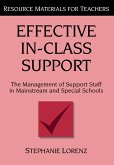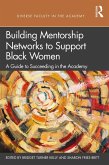29,95 €
29,95 €
inkl. MwSt.
Sofort per Download lieferbar

15 °P sammeln
29,95 €
Als Download kaufen

29,95 €
inkl. MwSt.
Sofort per Download lieferbar

15 °P sammeln
Jetzt verschenken
Alle Infos zum eBook verschenken
29,95 €
inkl. MwSt.
Sofort per Download lieferbar
Alle Infos zum eBook verschenken

15 °P sammeln
- Format: PDF
- Merkliste
- Auf die Merkliste
- Bewerten Bewerten
- Teilen
- Produkt teilen
- Produkterinnerung
- Produkterinnerung

Bitte loggen Sie sich zunächst in Ihr Kundenkonto ein oder registrieren Sie sich bei
bücher.de, um das eBook-Abo tolino select nutzen zu können.
Hier können Sie sich einloggen
Hier können Sie sich einloggen
Sie sind bereits eingeloggt. Klicken Sie auf 2. tolino select Abo, um fortzufahren.

Bitte loggen Sie sich zunächst in Ihr Kundenkonto ein oder registrieren Sie sich bei bücher.de, um das eBook-Abo tolino select nutzen zu können.
First Published in 1997. The book explains why homework is important, how teachers can set interesting and effective and well-differentiated homework, how schools can best support homework, how managers can best develop whole-school homework policies, and how parents can support the educational progress of their children. Different parts of this book are aimed at teachers, managers, and parents but pupils do not have a section to themselves.
- Geräte: PC
- mit Kopierschutz
- eBook Hilfe
- Größe: 2.49MB
Andere Kunden interessierten sich auch für
![International Perspectives on Student Outcomes and Homework (eBook, PDF) International Perspectives on Student Outcomes and Homework (eBook, PDF)]() International Perspectives on Student Outcomes and Homework (eBook, PDF)50,95 €
International Perspectives on Student Outcomes and Homework (eBook, PDF)50,95 €![Foundations of Distance Education (eBook, PDF) Foundations of Distance Education (eBook, PDF)]() Desmond KeeganFoundations of Distance Education (eBook, PDF)60,95 €
Desmond KeeganFoundations of Distance Education (eBook, PDF)60,95 €![Effective In-Class Support (eBook, PDF) Effective In-Class Support (eBook, PDF)]() Stephanie LorenzEffective In-Class Support (eBook, PDF)37,95 €
Stephanie LorenzEffective In-Class Support (eBook, PDF)37,95 €![Teacher Support Teams in Primary and Secondary Schools (eBook, PDF) Teacher Support Teams in Primary and Secondary Schools (eBook, PDF)]() Angela CreeseTeacher Support Teams in Primary and Secondary Schools (eBook, PDF)20,95 €
Angela CreeseTeacher Support Teams in Primary and Secondary Schools (eBook, PDF)20,95 €![The No-Nonsense Guide to Mental Health in Schools (eBook, PDF) The No-Nonsense Guide to Mental Health in Schools (eBook, PDF)]() John R. BurnsThe No-Nonsense Guide to Mental Health in Schools (eBook, PDF)29,95 €
John R. BurnsThe No-Nonsense Guide to Mental Health in Schools (eBook, PDF)29,95 €![Strengthening Families, Communities, and Schools to Support Children's Development (eBook, PDF) Strengthening Families, Communities, and Schools to Support Children's Development (eBook, PDF)]() Strengthening Families, Communities, and Schools to Support Children's Development (eBook, PDF)40,95 €
Strengthening Families, Communities, and Schools to Support Children's Development (eBook, PDF)40,95 €![Building Mentorship Networks to Support Black Women (eBook, PDF) Building Mentorship Networks to Support Black Women (eBook, PDF)]() Building Mentorship Networks to Support Black Women (eBook, PDF)33,95 €
Building Mentorship Networks to Support Black Women (eBook, PDF)33,95 €-
-
-
First Published in 1997. The book explains why homework is important, how teachers can set interesting and effective and well-differentiated homework, how schools can best support homework, how managers can best develop whole-school homework policies, and how parents can support the educational progress of their children. Different parts of this book are aimed at teachers, managers, and parents but pupils do not have a section to themselves.
Dieser Download kann aus rechtlichen Gründen nur mit Rechnungsadresse in A, B, BG, CY, CZ, D, DK, EW, E, FIN, F, GR, HR, H, IRL, I, LT, L, LR, M, NL, PL, P, R, S, SLO, SK ausgeliefert werden.
Produktdetails
- Produktdetails
- Verlag: Taylor & Francis
- Seitenzahl: 177
- Erscheinungstermin: 26. November 2013
- Englisch
- ISBN-13: 9781134092147
- Artikelnr.: 40096258
- Verlag: Taylor & Francis
- Seitenzahl: 177
- Erscheinungstermin: 26. November 2013
- Englisch
- ISBN-13: 9781134092147
- Artikelnr.: 40096258
- Herstellerkennzeichnung Die Herstellerinformationen sind derzeit nicht verfügbar.
Julian Stern
Part 1 What is Homework and What is it For?
Chapter 1 An Introduction to the history, purpose and current use of homework in schools
Chapter 2 Homework related to wider issues of supporting study, independent learning, distance learning and flexible learning
Chapter 3 Homework and equal opportunities: the forgotten year
Chapter 4 Homework and special needs
Part 2 A Teachers' Guide to Homework
Chapter 5 Introduction: Setting, monitoring and assessing homework
Chapter 6 English
Chapter 7 Maths and Science
Chapter 8 History, Geography and Religious Education
Chapter 9 Modern Foreign Languages
Chapter 10 Art, Music and Design and Technology
Chapter 11 Physical Education and Personal and Social Education
Chapter 12 Cross-curricular issues and Information Technology
Chapter 13 Coursework and examinations
Chapter 14 Teachers doing their own homework: Organising your own professional development and study
Part 3 A Managers' Guide to Homework
Chapter 15 Developing policies and practices in departments
Chapter 16 Developing whole-school policies
Chapter 17 Partnerships with parents and the community
Chapter 18 Managers doing their own homework: Organising your own professional development and study
Part 4 A Parents' Guide to Homework
Chapter 19 Introduction: 'Homework is Hell'
Chapter 20 Supporting Reading, Writing and Oral skills
Chapter 21 Supporting Maths and Science skills
Chapter 22 Supporting History, Geography, Religious Education, and Modern Foreign Languages
Chapter 23 Supporting the Arts, Technical and Physical skills
Chapter 24 Coursework and examinations
Chapter 25 Communicating with the school
Chapter 26 Making the most of leisure time
Part 5 Resourcing Homework and Study Support
Chapter 27 School libraries and public libraries
Chapter 28 Homework centres
Chapter 29 Community facilities: Beyond homeworking
Part 6 Sharing Information about Homework
Chapter 30 Researching homework in schools
Chapter 31 A short guide for teachers (for use in INSET courses)
Chapter 32 A short guide for pupils (for use in Personal and Social Education and study-support time)
Chapter 33 A short guide for parents (for use in preparation for meetings at school)
Chapter 34 Books for researchers, schools, parents and pupils
Chapter 1 An Introduction to the history, purpose and current use of homework in schools
Chapter 2 Homework related to wider issues of supporting study, independent learning, distance learning and flexible learning
Chapter 3 Homework and equal opportunities: the forgotten year
Chapter 4 Homework and special needs
Part 2 A Teachers' Guide to Homework
Chapter 5 Introduction: Setting, monitoring and assessing homework
Chapter 6 English
Chapter 7 Maths and Science
Chapter 8 History, Geography and Religious Education
Chapter 9 Modern Foreign Languages
Chapter 10 Art, Music and Design and Technology
Chapter 11 Physical Education and Personal and Social Education
Chapter 12 Cross-curricular issues and Information Technology
Chapter 13 Coursework and examinations
Chapter 14 Teachers doing their own homework: Organising your own professional development and study
Part 3 A Managers' Guide to Homework
Chapter 15 Developing policies and practices in departments
Chapter 16 Developing whole-school policies
Chapter 17 Partnerships with parents and the community
Chapter 18 Managers doing their own homework: Organising your own professional development and study
Part 4 A Parents' Guide to Homework
Chapter 19 Introduction: 'Homework is Hell'
Chapter 20 Supporting Reading, Writing and Oral skills
Chapter 21 Supporting Maths and Science skills
Chapter 22 Supporting History, Geography, Religious Education, and Modern Foreign Languages
Chapter 23 Supporting the Arts, Technical and Physical skills
Chapter 24 Coursework and examinations
Chapter 25 Communicating with the school
Chapter 26 Making the most of leisure time
Part 5 Resourcing Homework and Study Support
Chapter 27 School libraries and public libraries
Chapter 28 Homework centres
Chapter 29 Community facilities: Beyond homeworking
Part 6 Sharing Information about Homework
Chapter 30 Researching homework in schools
Chapter 31 A short guide for teachers (for use in INSET courses)
Chapter 32 A short guide for pupils (for use in Personal and Social Education and study-support time)
Chapter 33 A short guide for parents (for use in preparation for meetings at school)
Chapter 34 Books for researchers, schools, parents and pupils
Part 1 What is Homework and What is it For?
Chapter 1 An Introduction to the history, purpose and current use of homework in schools
Chapter 2 Homework related to wider issues of supporting study, independent learning, distance learning and flexible learning
Chapter 3 Homework and equal opportunities: the forgotten year
Chapter 4 Homework and special needs
Part 2 A Teachers' Guide to Homework
Chapter 5 Introduction: Setting, monitoring and assessing homework
Chapter 6 English
Chapter 7 Maths and Science
Chapter 8 History, Geography and Religious Education
Chapter 9 Modern Foreign Languages
Chapter 10 Art, Music and Design and Technology
Chapter 11 Physical Education and Personal and Social Education
Chapter 12 Cross-curricular issues and Information Technology
Chapter 13 Coursework and examinations
Chapter 14 Teachers doing their own homework: Organising your own professional development and study
Part 3 A Managers' Guide to Homework
Chapter 15 Developing policies and practices in departments
Chapter 16 Developing whole-school policies
Chapter 17 Partnerships with parents and the community
Chapter 18 Managers doing their own homework: Organising your own professional development and study
Part 4 A Parents' Guide to Homework
Chapter 19 Introduction: 'Homework is Hell'
Chapter 20 Supporting Reading, Writing and Oral skills
Chapter 21 Supporting Maths and Science skills
Chapter 22 Supporting History, Geography, Religious Education, and Modern Foreign Languages
Chapter 23 Supporting the Arts, Technical and Physical skills
Chapter 24 Coursework and examinations
Chapter 25 Communicating with the school
Chapter 26 Making the most of leisure time
Part 5 Resourcing Homework and Study Support
Chapter 27 School libraries and public libraries
Chapter 28 Homework centres
Chapter 29 Community facilities: Beyond homeworking
Part 6 Sharing Information about Homework
Chapter 30 Researching homework in schools
Chapter 31 A short guide for teachers (for use in INSET courses)
Chapter 32 A short guide for pupils (for use in Personal and Social Education and study-support time)
Chapter 33 A short guide for parents (for use in preparation for meetings at school)
Chapter 34 Books for researchers, schools, parents and pupils
Chapter 1 An Introduction to the history, purpose and current use of homework in schools
Chapter 2 Homework related to wider issues of supporting study, independent learning, distance learning and flexible learning
Chapter 3 Homework and equal opportunities: the forgotten year
Chapter 4 Homework and special needs
Part 2 A Teachers' Guide to Homework
Chapter 5 Introduction: Setting, monitoring and assessing homework
Chapter 6 English
Chapter 7 Maths and Science
Chapter 8 History, Geography and Religious Education
Chapter 9 Modern Foreign Languages
Chapter 10 Art, Music and Design and Technology
Chapter 11 Physical Education and Personal and Social Education
Chapter 12 Cross-curricular issues and Information Technology
Chapter 13 Coursework and examinations
Chapter 14 Teachers doing their own homework: Organising your own professional development and study
Part 3 A Managers' Guide to Homework
Chapter 15 Developing policies and practices in departments
Chapter 16 Developing whole-school policies
Chapter 17 Partnerships with parents and the community
Chapter 18 Managers doing their own homework: Organising your own professional development and study
Part 4 A Parents' Guide to Homework
Chapter 19 Introduction: 'Homework is Hell'
Chapter 20 Supporting Reading, Writing and Oral skills
Chapter 21 Supporting Maths and Science skills
Chapter 22 Supporting History, Geography, Religious Education, and Modern Foreign Languages
Chapter 23 Supporting the Arts, Technical and Physical skills
Chapter 24 Coursework and examinations
Chapter 25 Communicating with the school
Chapter 26 Making the most of leisure time
Part 5 Resourcing Homework and Study Support
Chapter 27 School libraries and public libraries
Chapter 28 Homework centres
Chapter 29 Community facilities: Beyond homeworking
Part 6 Sharing Information about Homework
Chapter 30 Researching homework in schools
Chapter 31 A short guide for teachers (for use in INSET courses)
Chapter 32 A short guide for pupils (for use in Personal and Social Education and study-support time)
Chapter 33 A short guide for parents (for use in preparation for meetings at school)
Chapter 34 Books for researchers, schools, parents and pupils







